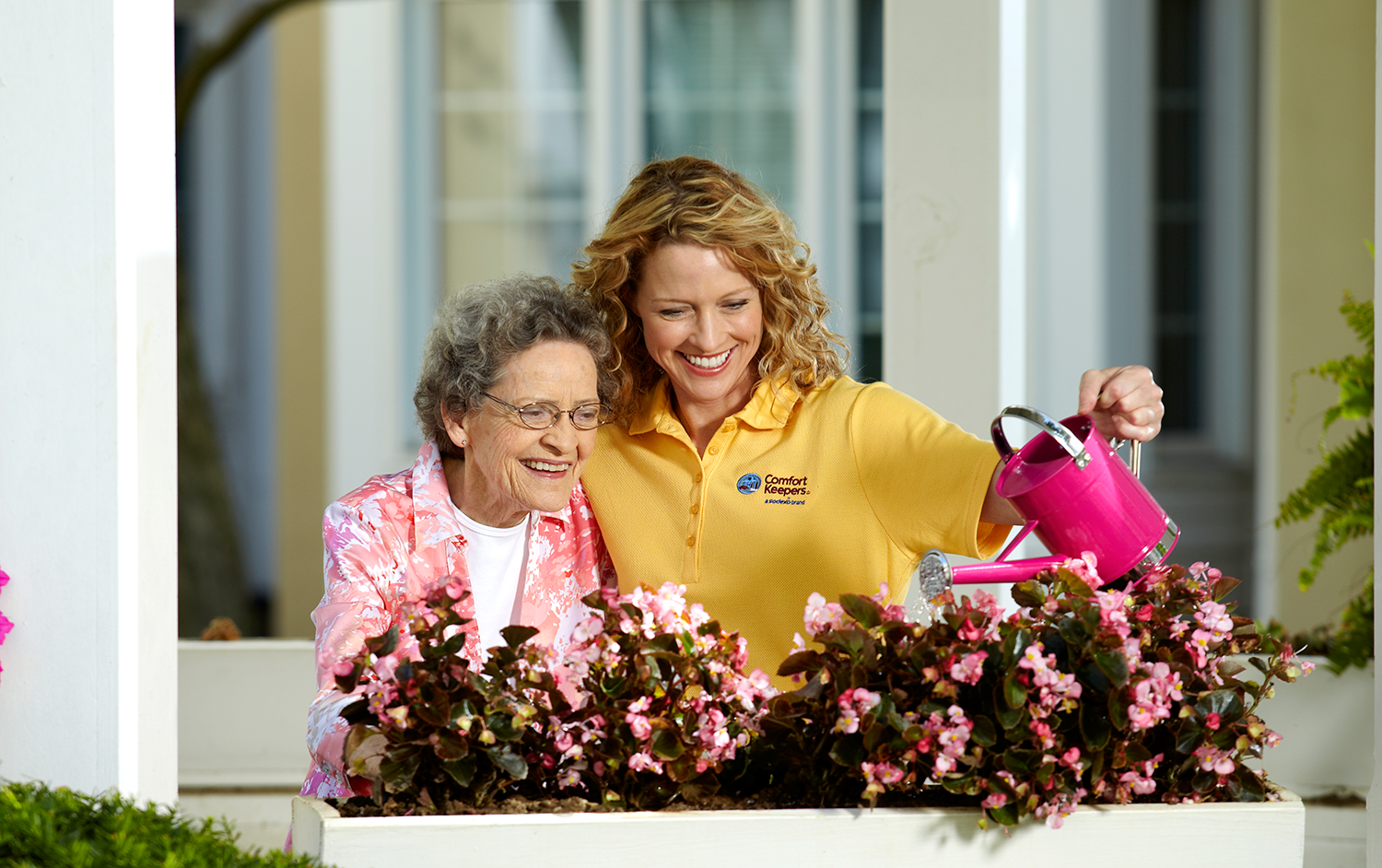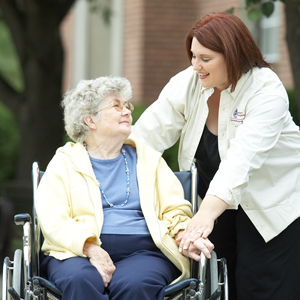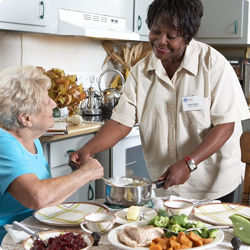Senior Oral Health: What to Know & Best Practices
Collingwood Senior Health | November 16, 2018
Aging’s Impact on Oral Health
Senior Oral Health | There have been numerous advancements in the world of oral health over the last few decades, from increased education on the importance of proper care to the ever-evolving sophistication of dental technology. But despite these positive changes, senior oral health is one segment of the population that still faces significant challenges. What makes them more vulnerable compared to other age groups? For starters, natural changes alter our teeth and gums as we age. Teeth begin to darken because of changes to dentin – tissue below the enamel that makes up the tooth itself – while the mouth becomes dry due to reduced saliva flow. Years of chewing also take their toll, causing enamel to break down.
In addition to these factors, seniors may also struggle with their oral health because of certain conditions that make brushing and flossing difficult. Arthritis, for instance, can make these simple motions extraordinarily painful. Prescription and over-the-counter drugs also play a role. In fact, the Centers for Disease Control and Prevention (CDC) notes that there are more than 400 commonly used drugs that can cause dry mouth.
While it’s easy to look at all of this and assume the worst, that poor oral health is inevitable for older adults, there is good news. Seniors can maintain healthy mouths and reduce their risk of cavities, gum disease, and everything in between, all by following a few best practices. Below are a few that senior clients can incorporate into their routines:
Senior Oral Health Best Practices
- Brush at least twice a day using fluoride toothpaste, and floss at least once a day to reduce dental plaque. If arthritis or other conditions make this difficult, ask a loved one for assistance.
- See a dentist regularly for a cleaning and oral exam, even if there are no longer any natural teeth – especially to help identify the presence of pre-cancerous/cancerous lesions.
- Do not use tobacco products of any kind (e.g., cigarettes, cigars, pipes, or chewing tobacco).
- Use sugar-free gum to stimulate saliva production.
- Limit alcohol consumption as alcoholic beverages can increase the risk of oral and throat cancer.
- Drink more water (at least eight 8-ounce glasses a day) to help reduce the risk of dry mouth. As we age, our thirst signals begin to diminish and are thus less reliable. Seniors should carry a water bottle around, and set alarms reminding them of when to hydrate.
- If medication is causing dry mouth, seniors should ask a physician for one that doesn’t produce the specific side effect.
Senior oral health care is about more than just making sure that our breath isn’t bad. Research suggests poor oral health may be linked to endocarditis, an infection of the inner lining of the heart, as well as cardiovascular disease. Tooth loss, as a result of periodontal disease or tooth decay, can also make eating more difficult. This can in turn lead to malnutrition. Because seniors are already at a higher risk for these conditions and others, it’s imperative that they give extra attention to their oral care. Doing so can make a significant impact on their overall wellbeing.
Comfort Keepers® Georgian Triangle Can Help
If you are concerned about the health and wellbeing of your aging loved ones we can help. Comfort Keepers®’s trained caregivers help provide senior clients with the highest quality of life possible to keep them happy and healthy at home. Our Interactive Caregiving™ provides a system of care that addresses safety, nutrition, mind, body, and activities of daily living (ADLs).
What’s more, our trained caregivers are selected with one specific quality in mind: empathy. Care that is empathetic is care that starts in the heart, and it allows us to meet our clients’ exact needs. Learn more about our unique service offering by contacting the Comfort Keepers Georgian Triangle office.
If you live in the Collingwood, Midland, Owen Sound area, contact Comfort Keepers at (705) 293-5553, or email us at georgiantriangle@comfortkeepers.ca
Comfort Keepers Georgian Triangle is here to help you and your loved ones get the best care possible.
References:
Web MD. “Dental Care for Seniors.” Web. 2018.
Centers for Disease Control and Prevention. “Oral Health for Older Americans.” Web. 2018.
Colgate. “Oral Care Tips for Older Adults” by Willie Pena. Web. 2018.
Mayo Clinic. “Oral Health: A Window to Your Overall Health” by Mayo Clinic Staff. Web. 2018.
Mouth Healthy – American Dental Association. “Concerns: The Link Between Medications and Cavities.” Web. 2018.
Individualized Home Care Options
Long-Term Home Care, 24 Hour Home Care & Short Term Care Options Customized for You







